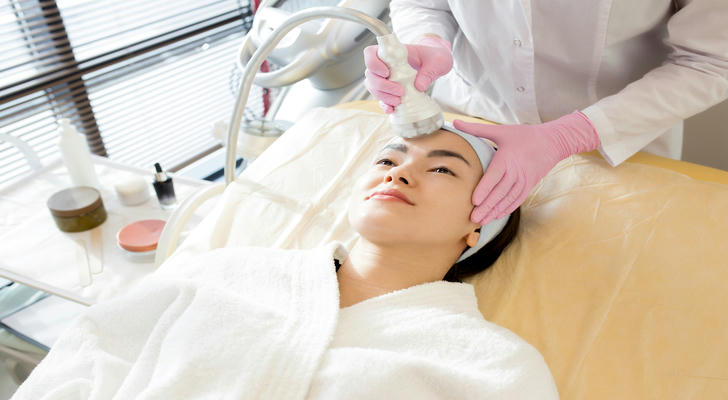Certification and Professional Development of Medical Aestheticians
The field of medical aesthetics combines advanced cosmetic treatments with medical expertise to enhance and maintain physical appearance. As the demand for non-surgical beauty treatments grows, medical aestheticians are increasingly sought after for their skills in procedures such as laser therapy, chemical peels, and injectables. To ensure the highest standards of care and expertise, certification and continuous professional development are essential.

1. The Importance of Certification in the Medical Aesthetic Industry
The medical aesthetics industry has witnessed significant growth due to the rise in demand for non-surgical cosmetic treatments. As this sector expands, certified medical aestheticians are crucial to ensuring safe and effective procedures. Certification acts as a proof of competence, providing clients with confidence in the quality and safety of treatments.
Certification ensures that medical aestheticians are equipped with essential skills, ethical standards, and technical knowledge to perform advanced procedures such as Botox injections, dermal fillers, and laser treatments. For clients, certified professionals represent assurance that their treatments are being carried out by experts who follow safety protocols and industry best practices.
2. How Certification Enhances Professional Credibility
2.1 Building Trust with Clients
One of the main benefits of certification is that it fosters trust between medical aestheticians and clients. As more individuals seek cosmetic procedures, certification establishes the credibility of professionals in a competitive market. Clients are more likely to choose certified aestheticians, knowing they have passed thorough training and demonstrated proficiency in their craft.
2.2 Demonstrating a Commitment to Professional Standards
Certification indicates that medical aestheticians uphold high standards in their practice. This includes ensuring knowledge of the latest techniques, maintaining safety protocols, and following sanitation guidelines. As a result, clients are more confident in the quality of care provided, leading to higher client satisfaction and retention. A commitment to professional standards can significantly boost the reputation of the aesthetician within the industry.
3. Certification as a Pathway to Career Advancement
Improving Job Prospects
For medical aestheticians, certification often opens up numerous career opportunities. Employers frequently prefer to hire certified professionals, as this reduces the risk of malpractice or subpar results. Many specialized roles within medical aesthetics, such as working with advanced laser treatments or injectables, require certification. This credential offers a competitive edge in the job market and often leads to better job security.
Increasing Earning Potential
While income varies based on factors like experience and location, certified medical aestheticians generally have higher earning potential. Certification can lead to higher-paying positions such as senior roles, instructors, or clinic owners. In addition, certified aestheticians may be able to charge higher fees for their expertise, especially for more specialized treatments.

4. The Role of Continuing Education in Professional Development
Keeping Skills Up-to-Date
The medical aesthetics field is constantly evolving, with new technologies and treatments being introduced frequently. To stay competitive and provide clients with the best services, certified medical aestheticians must engage in ongoing learning. This could involve attending workshops, completing specialized courses, or staying informed about the latest treatments and regulations. Continuing education helps professionals stay at the forefront of the industry and maintain the highest standards of care.
Adapting to New Technologies and Procedures
With the rapid advancement of technology in the beauty industry, staying updated on new treatments is essential. Emerging procedures such as non-invasive body contouring, advanced laser technologies, and PRP (Platelet-Rich Plasma) facials are gaining popularity. By continuously learning about these innovations, medical aestheticians can diversify their service offerings and stay ahead of competitors, further enhancing their career prospects.

5. The Benefits of Certification for Personal Branding and Reputation
Strengthening Your Professional Brand
Certification plays a pivotal role in establishing and promoting an aesthetician’s professional brand. By highlighting their credentials, certified professionals can differentiate themselves from non-certified practitioners, thus building a reputation for expertise, reliability, and professionalism. This reputation, in turn, attracts clients and generates word-of-mouth referrals, leading to a growing client base.
Networking and Building a Professional Community
Certified medical aestheticians gain access to exclusive professional organizations and networks that non-certified individuals may not have. These networks offer opportunities for professional development, networking, and collaboration. Attending conferences, seminars, and industry events allows aestheticians to stay connected with peers, exchange insights, and gain exposure to new trends, all of which contribute to long-term career growth.
6. Overcoming Challenges in Certification and Professional Development
Navigating the Certification Process
The certification process for medical aestheticians can be complex, varying by region and profession. It typically involves completing specific training hours, passing exams, and demonstrating practical skills. Some professionals may find these requirements challenging, especially when considering the time and financial investment. However, navigating this process is essential for gaining the credibility and career opportunities that certification provides.
Balancing Work and Education
Medical aestheticians often work demanding hours, making it difficult to balance work with the need for continuing education. Fortunately, many certification programs offer flexible schedules, such as online courses or evening classes, allowing professionals to continue their education without disrupting their work-life balance. By incorporating continuing education into their routine, aestheticians can stay on top of industry developments and enhance their skills.
7. Conclusion
Certification plays a vital role in the professional development of medical aestheticians. It not only enhances credibility but also opens up career opportunities, increases earning potential, and strengthens personal branding. As the industry continues to evolve, ongoing education ensures that certified professionals remain competitive and knowledgeable about the latest trends and technologies.
By embracing certification and committing to lifelong learning, medical aestheticians can ensure their success in the growing and dynamic field of medical aesthetics.
